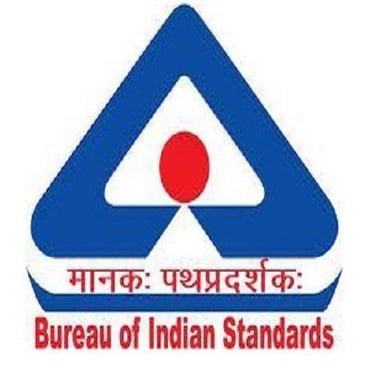Introduction to IS 2062: Indian Standard for Structural Steel
MATERIAL
1/18/20242 min read


IS 2062 is an important Indian Standard that outlines the specifications for hot-rolled medium and high-tensile structural steel.
This standard covers a wide range of steel products, including plates, strips, shapes, sections, flats, and bars, which are commonly used in structural work.
Since its first publication in 1962, IS 2062 has undergone several revisions, with the latest one in 2011. This standard plays a significant role in the Indian steel industry, serving both the integrated and secondary sectors.
IS 2062 provides a comprehensive set of requirements that ensure the quality and performance of structural steel. It specifies the chemical composition, mechanical properties, and other essential characteristics that the steel must possess to meet the desired standards. The standard sets guidelines for the manufacturing process, testing methods, and marking of the steel products, ensuring consistency and reliability in their performance. One of the key aspects of IS 2062 is its focus on medium and high-tensile strength steel. Tensile strength refers to the maximum amount of stress a material can withstand before it breaks or deforms permanently. Medium and high tensile strength steel is commonly used in structural applications where strength and durability are crucial. This includes the construction of buildings, bridges, industrial structures, and machinery. The standard defines various grades of steel, each with specific requirements for chemical composition and mechanical properties. These grades are designated by a combination of letters and numbers, indicating the characteristics of the steel. The choice of grade depends on the intended use and the specific requirements of the project. IS 2062 also addresses the issue of weldability, which is an important consideration in structural steel. Weldability refers to the ability of a material to be welded without causing defects or compromising its structural integrity. The standard provides guidelines for the welding process, including pre-welding and post-welding procedures, to ensure that the welded joints meet the required standards. In addition to the technical specifications, IS 2062 also covers the dimensions and tolerances of the steel products. This ensures uniformity and compatibility in the construction process, allowing for easy assembly and integration of the structural components. The standard specifies the permissible deviations in size, shape, and surface finish, enabling effective quality control and inspection. The adoption of IS 2062 in the Indian steel industry has been instrumental in promoting standardization and quality assurance. By adhering to this standard, manufacturers can produce steel products that meet the necessary criteria for structural applications. This not only enhances the safety and reliability of the structures but also facilitates efficient construction practices. Furthermore, IS 2062 plays a vital role in facilitating trade and commerce in the steel industry. The standard provides a common language and reference point for buyers and sellers, ensuring transparency and clarity in transactions. It enables seamless integration of steel products from different manufacturers and facilitates fair competition in the market. To ensure compliance with IS 2062, manufacturers are required to undergo regular inspection and testing of their products. This includes chemical analysis, mechanical testing, and non-destructive testing, among others. These stringent quality control measures help maintain the integrity and reliability of the structural steel used in various applications. In conclusion, IS 2062 is an essential Indian Standard that governs the specifications for hot-rolled medium and high-tensile structural steel. This standard provides comprehensive guidelines for the chemical composition, mechanical properties, dimensions, and tolerances of steel products used in structural work. By adhering to IS 2062, the Indian steel industry can ensure the production of high-quality and reliable steel products for various construction projects.
